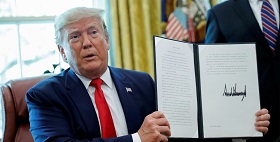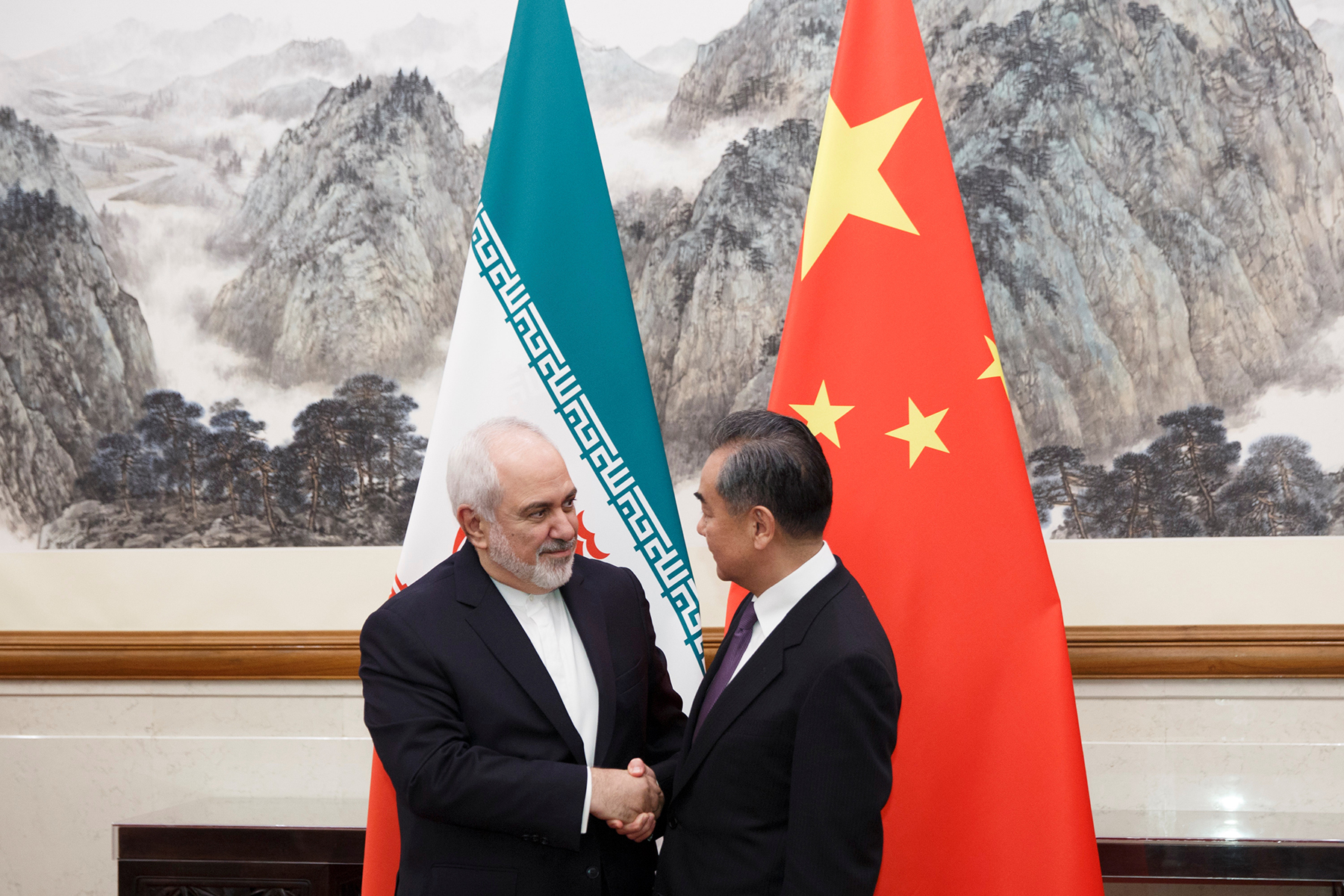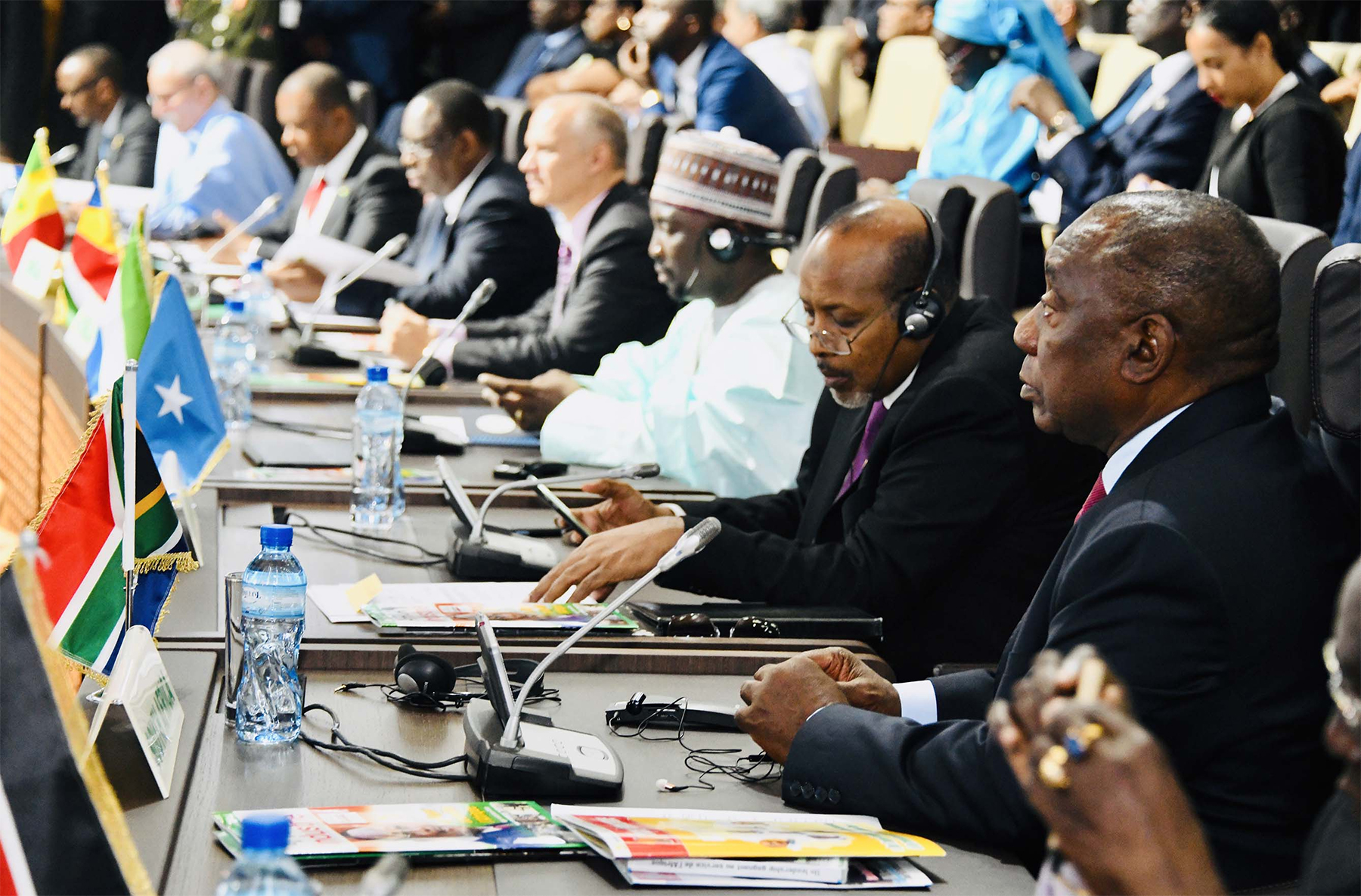The growing arbitrary application of unilateral financial sanctions has caused tremendous damage with lasting negative impacts on countries across the world. The inability of sanctioned countries for conducting international trade, being banned from accessing the global banking system to support their population, societies, and economies is the key kernel of sanctions.
The global banking system is in more cases than one over-dependent on the US dollar. Cutting any country from the global financial circuit, applying rules and unilateral penalties to other states, economic actors and the global business community is in more ways than one an economic detention term.
Establishing a new currency purpose oriented for trade among these six economies is long overdue. The Sr. Management of NDB can easily expand the remit of the bank by entering trade finance and project finance between these six countries alone. The bank could ask its shareholders to deploy and commit some of their gold reserves (abundant resources and gold mines in Russia, Iran, and South Africa) to this new currency to accelerate its credibility and uptake among these six countries.
The short, mid and long-term impact of such a strategic initiative will have a reverberating impact on the true potential of these six countries and without a doubt present new opportunity for the global growth at large in these challenging and precarious economic forecasts.
Whether you call it Robust, Resolve, Relay or Reform, one thing is for sure, and that Retreat is a currency with which to unlock the true potential of these dynamic markets and economies and the world at large.
Sanctions and Sacrifice of Generations
I have lived through sanctions. I know their aroma of depravity, their unipolar projections of might, and their arbitrary fright on lives of ordinary people, economies and generations who live and are raised through sanctions.
I have seen families in distress and anguish not being able to access and provide medication for their loved ones diagnosed with cancer, hospitals re-sterilizing disposable medical devices, friends falling out of skies on a family holiday as a result of civil aviation being deprived of spare parts or students being stranded overseas because they can no longer receive their sustenance from their parents hard-earned income. In brief futures that become futile in the process of failing diplomacy.
The past two decades and in particular the last five years, the word “sanctions or sanctioned” are used as a trivial terminology in the daily news. Hardly any of us can comprehend how it is to live in and under sanctions.
Many know that sanctions have hardly produced or lead to any positive outcomes in the sanctioned countries. One could take a page out of history and to see that they only inflict carnage on the most vulnerable, and the ones most in need. Case in point the death of almost 500,000 (yes half a million children) in Iraq as Dennis Halliday the Former U.N. humanitarian coordinator in Iraq who resigned from his role has talked about in length on this subject.*
After Breton Woods, the US dollar has been the global reserve currency and it just celebrated its 75th anniversary, and yet this timeline deserves some contemplation.
The growing arbitrary application of unilateral financial sanctions has caused tremendous damage with lasting negative impacts on countries across the world. The inability of sanctioned countries for conducting international trade, being banned from accessing the global banking system to support their population, societies, and economies is the key kernel of sanctions.
The global banking system is in more cases than one over-dependent on US dollar. Cutting any country from the global financial circuit applying rules and unilateral penalties to other states, economic actors and the global business community is in more ways than one an economic detention term.
The Power of Responsibility and the Responsibility of Power
Depriving any nation of the global financial grid is a similar approach to depriving the reach of oxygen to the lungs of any economy and its citizens. One could even equate it to a collective “Enhanced Economic Interrogation Technique.”
The inability of many of the sanctioned countries to trade in US dollars, issue debt in global markets, or to attend to the very essential and human needs of their populations is glossed over by commentaries on human rights, while the very basic rights of millions of humans are unrightfully denied through sanctions on a daily basis.
In other words, the US dollar has become a straight jacket that is put on any nation, if and when it is political, socio-economical interests are not aligned with the United States.
There is no question that US dollar withholds and continues to maintain its preeminent status as the leading global currency, yet the over application and utilization of its extra-territorial, judicial, unilateral punitive measures has started to cause reasons for concern in some of the largest global economies. With power comes responsibility.
Ripple Effects beyond the Sanctioned State
Sanctions also have a vast secondary and tertiary impact on the world economy at large. One could argue that within the frail and ever-challenging global economic order integration of new markets, and a positive change is a better approach than blanket isolation.
In the absence of true rational leadership, avoid of pragmatic diplomacy for formulating a global order that is inclusive, the application of sanctions is reminiscent of the old saying of: “What is mine is mine and what is yours is negotiable, and my terms and conditions are non-negotiable.”
Whether walking out of JCPOA and reapplying unilateral sanctions and enforcing them all signatories or depriving Germany and Europe from pursuing investments and progress with Nord Stream II while expanding Permian oil and gas basin on full speed, or its growing and guided trade war with China and lately India are all signs of major concern for the custodian of the global reserve currency.
New World Begets a New Bank
As a default mode, China should also beware that “the sanctioned objects in the mirror are closer than they appear.” In other words, China may also be a subject to sanctions at one point partially or fully.
China, Russia, India, Brazil, and South Africa are the founding members of the New Development Bank. NDB’s 2017–2021 general strategy clearly highlights the bank’s commitment and intention to be new in three areas: 1) new relationships; 2) new projects and instruments; 3) new approaches.
All of these goals herald an unconventional, bold new, inclusive and non-linear approach for NDB as a creative multilateral development bank (MDB).
If NDB were to consider inviting Iran to take up 100K shares equal to the other shareholders in the NBD then the six countries would collectively have:
- Fertile lands that sum up to 28% of the entire world’s landmass
- Combined consumer markets of 3,270,000,000 people or almost half of humanity
- With some of the potentially fastest growing economies and rich human capital
- A combined GDP of 17.259 tr with the second largest world economy in the mix
- Having two permanent seats on the UN Security Council: China and Russia
- Brazil and India are also part of G4 with Germany and Japan
- Largest global gas reserves: Russia and Iran to anchor energy security
- A whole array of latent infrastructure projects/synergies among the six nations
The intra-group synergies between these six economies alone then justify a bolder move for NDB such as establishing and introducing a new currency for what I like to call R6.
Some may think where US dollar ends in R; Renminbi will start with a new R., In reality, the time it will take, and the obstacle with which Renminbi has to overcome to directly challenge or offer an alternative to US dollar are long and rather not straight.
However all of these countries or the R6 have a currency that starts with R: the Chinese Renminbi, Russian Rouble, India’s Rupee, Brazils’ Real, Iran’s Rial and South Africa’s Rand.
So why not considering a new currency called R6 or Robust, Resolve, Relay or Reform?
Establishing a new currency purpose oriented for trade among these six economies is long overdue. The Sr. Management of NDB can easily expand the remit of the bank by entering trade finance and project finance between these six countries alone. The bank could ask its shareholders to deploy and commit some of their gold reserves (abundant resources and gold mines in Russia, Iran, and South Africa) to this new currency to accelerate its credibility and uptake among these six countries.
Iran would sell oil in Resolve to China, China pays Resolve to Brazil for Soya Beans, Brazil pays Resolve to Russia for fertilizers, Russia pays India in Resolve for tea, and India pays in Resolves to South Africa for distillation products.
The merits for accelerating and expanding the scope of NDB are not only inherent in the form of more elasticity for national currencies but also bringing Asia Pacific (China), Eurasia (Europe), India (Sub-Continent), Middle East or West Asia (Iran) Africa (South Africa) and South America (Brazil) together. An immediate intra-continental set of synergies will emerge through issuing bonds, loans and even trade finance.
Some of the GCC countries also share the R in their Rials in KSA and Qatar. But they cannot contemplate being in this league, solely because they are pegged to USD and none has yet faced any of the hardships that some of the key players in this pack and ensemble have economically endured.
What is proposed in this article is not a moonshot for a new currency, but a real landing for economic growth among six countries that despite their apparent differences, share some inherent and undeniable commonalities such as abundance resources of natural resources, human capital and cohesive synergies for growth, and the necessity to immunize their economic growth and inoculate their populations prosperity within a more harmonious, non-punitive and predictable financial framework.
The short, mid and long-term impact of such a strategic initiative will have a reverberating impact on the true potential of these six countries and without a doubt present new opportunity for the global growth at large in these challenging and precarious economic forecasts.
Whether you call it Robust, Resolve, Relay or Reform, one thing is for sure, and that Retreat is not a currency with which to unlock the true potential of these dynamic markets and economies and the world at large.
As Nelson Mandela said: ” It always seems impossible until it’s done.”
Bibliography
- Horton S. Dennis Halliday on the deaths of Iraqi children due to American sanctions in the ’90s // The Libertarian Institute, URL: https://libertarianinstitute.org/scotthortonshow/4-20-18-dennis-halliday-on-the-deaths-of-iraqi-children-due-to-american-sanctions-in-the-90s/
- Saglam B. No need for plan B against US sanctions: Nord Stream 2 // Anadolu Agency. 13.05.2019. URL: a target="_blank" href=" https://www.aa.com.tr/en/economy/no-need-for-plan-b-against-us-sanctions-nord-stream-2/1476983&q...








